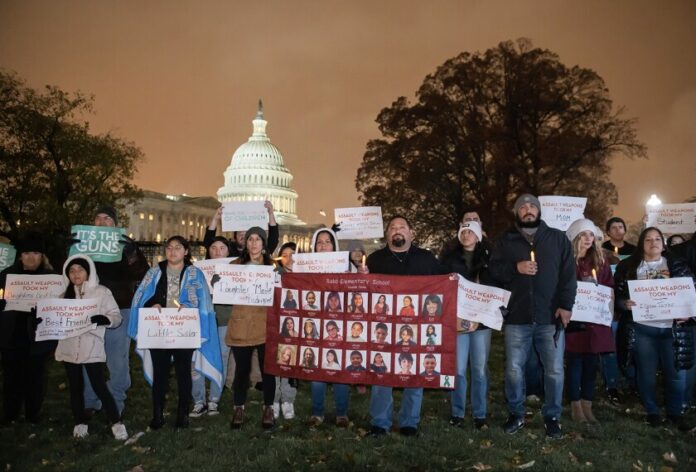The Second Amendment to the United States Constitution, ratified in 1791, remains one of the most hotly debated and controversial clauses in the document. It reads: “A well regulated Militia, being necessary to the security of a free State, the right of the people to keep and bear Arms, shall not be infringed.” This seemingly straightforward statement has sparked countless legal battles, political skirmishes, and public discourse spanning centuries. The debate surrounding the Second Amendment boils down to a fundamental question: how do we reconcile the individual right to bear arms with the need to ensure public safety and prevent gun violence?
History of Gun Control Laws
To understand the current state of gun control laws in the United States, it is essential to examine their history. The regulation of firearms dates back to colonial times when early American settlers brought with them English common law restrictions on carrying weapons in certain locations such as churches and courtrooms. During the Revolutionary War, states began enacting laws to prohibit loyalists from owning firearms, giving rise to the notion that firearms were a symbol of freedom and independence.
However, after the war, there was a growing fear of armed rebellions and riots, leading to the passage of the first federal gun control law in 1792. This law required all able-bodied men between the ages of 18 and 45 to have a musket or rifle, along with ammunition and other equipment, ready for service in the militia. This law, known as the Militia Acts, reflected the Founding Fathers’ belief in the importance of a well-regulated militia for national defense.
Throughout the 19th century, several states passed laws restricting the carrying of concealed weapons, and by the early 20th century, the idea of regulating firearms became more prevalent. In 1927, Congress passed the first legislation banning the importation of certain types of firearms. However, it was not until the 1960s and 1970s that gun control laws gained significant attention due to a rise in violent crimes.
Current Gun Control Laws in the United States

Today, the regulation of firearms is primarily governed by the federal government, with some states enacting their own laws. The primary federal law regulating firearms is the Gun Control Act of 1968, which prohibits certain individuals from purchasing or possessing firearms, such as convicted felons, fugitives, and individuals with a history of mental illness. It also requires licensed firearm dealers to conduct background checks on prospective buyers and maintain records of all sales.
In 1993, Congress passed the Brady Handgun Violence Prevention Act, which established a five-day waiting period for handgun purchases and required background checks on all sales made by licensed dealers. This law was later amended in 1998 to allow for instant background checks through the National Instant Criminal Background Check System (NICS).
In recent years, several states have enacted their own gun control measures, such as universal background check laws, red flag laws, and bans on assault weapons and high-capacity magazines. These laws often face legal challenges, as gun rights advocates argue that they infringe upon their Second Amendment rights.
Debate and Controversy Surrounding Gun Control

The debate over gun control has become increasingly polarizing in recent years, with proponents arguing for stricter regulations to prevent gun violence and opponents advocating for the protection of Second Amendment rights. According to a 2019 Pew Research Center survey, 60% of Americans believe that gun laws should be stricter, while 27% say they should be left as they are, and 11% want them to be less strict.
One of the main arguments against gun control is that it violates the Second Amendment’s right to bear arms. Supporters of this view argue that the Founding Fathers intended the Second Amendment to guarantee an individual’s right to own firearms for self-defense and protection against a tyrannical government. They also point to the phrase “shall not be infringed” as evidence that any restriction on gun ownership is unconstitutional.
On the other hand, advocates for stricter gun control laws argue that the Second Amendment was intended to apply to organized militias, not individuals. They believe that the right to bear arms should not supersede public safety and that reasonable regulations, such as background checks and bans on certain types of weapons, are necessary to prevent gun violence.
Impact of Gun Control Laws
The effectiveness of gun control laws in reducing gun violence is a topic of ongoing debate. Proponents of stricter gun control point to countries like Japan and Australia, which have strict gun control measures and low rates of gun violence. Conversely, opponents argue that these laws only impact law-abiding citizens and that criminals will still find ways to obtain firearms illegally.
One study by the RAND Corporation found that certain gun control measures, such as background checks and restrictions on high-risk individuals’ access to firearms, can reduce gun violence. However, they also noted that the effect of these laws may vary based on factors such as enforcement and compliance.
Another critical aspect of the impact of gun control laws is their potential effects on marginalized communities. Historically, gun control measures have disproportionately affected people of color, leading to concerns about racial bias and discrimination. Therefore, it is essential for lawmakers to consider the potential consequences of gun control laws on different communities and ensure that they do not further perpetuate systemic inequalities.
Future of Gun Control Legislation
The current political landscape in the United States makes it challenging to predict the future of gun control legislation. While there have been calls for stricter gun control measures in response to mass shootings and other acts of gun violence, these efforts have often faced significant opposition. The influence of powerful lobbying groups, such as the National Rifle Association (NRA), also plays a significant role in shaping gun control laws.
However, there have been some recent developments that suggest a potential shift in the conversation around gun control. In March 2021, the House of Representatives passed two bills to strengthen background checks on firearm purchases. These bills have yet to be voted on in the Senate, but their passage in the House shows a growing interest in addressing gun violence through legislative means.
Conclusion
The Second Amendment remains a contentious issue in American politics, with both sides of the debate holding strong and often conflicting opinions. While it is essential to uphold individuals’ rights, it is also crucial to ensure public safety and prevent senseless acts of gun violence. Finding a balance between these two goals will require open and honest discussions, as well as a willingness to understand and consider different perspectives. Ultimately, the future of gun control legislation will depend on the ability of lawmakers and citizens to come together and find common ground.









